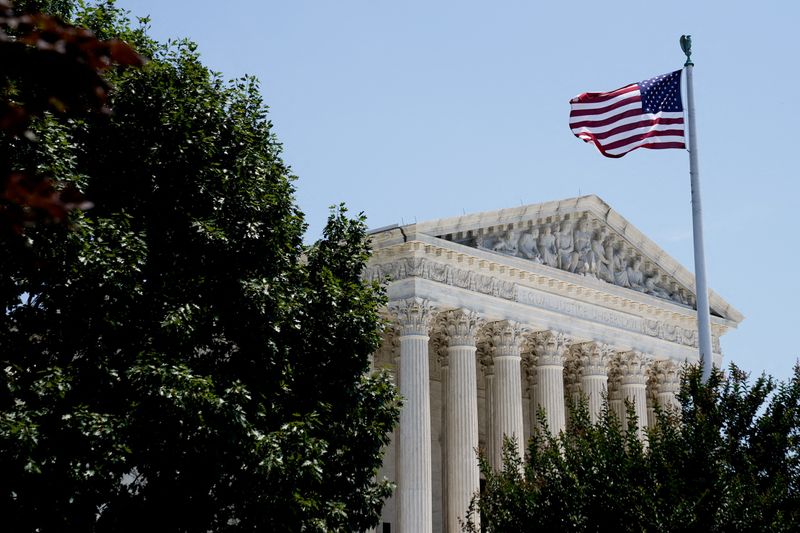By Brendan Pierson
The U.S. Supreme Court on Monday declined to hear a challenge to Los Angeles County's ban on sales of flavored tobacco products brought by R.J. Reynolds Tobacco Company, which had argued that only the federal government - not state or local governments - has the legal authority to regulate tobacco products.
The justices turned away the North Carolina-based tobacco company's appeal of a lower court's decision to uphold the ban, which includes products such as menthol cigarettes and vape juice, that took effect in 2020. R.J. Reynolds is part of British American Tobacco (NYSE:BTI).
The Supreme Court in December allowed a California statewide ban on flavored tobacco products, also challenged by R.J. Reynolds, to go into effect. Gavin Newsom, the Democratic governor of the most-populous U.S. state, signed that ban - a policy response to concerns about a rise in e-cigarette and tobacco use by teens - into law in 2020 and it was upheld by voters in a 2022 ballot initiative.
California became the second state to ban all flavored tobacco product sales, after Massachusetts in 2019. Several other states have restricted flavored vaping products, and several municipalities have adopted their own bans.
Then-Los Angeles Mayor Eric Garcetti, a Democrat, signed the local ban last June, a move hailed by medical groups including the American Lung Association, which called it a "tremendous step in public health."
Flavored tobacco products, especially e-cigarettes, have come under scrutiny in recent years as critics have said they appeal to youth. The U.S. Food and Drug Administration last year sought to pull all of leading e-cigarette maker Juul Labs Inc's products off the market, though that decision is on hold while the company challenges it.
A three-judge panel of the San Francisco-based 9th U.S. Circuit Court of Appeals last year upheld the Los Angeles ban on a 2-1 vote. The panel found that the industry was misreading the 2009 law that gave the FDA sole authority to develop and enforce "tobacco product standards," noting that this means the agency has exclusive power to regulate the production and marketing of tobacco products, but not retail sales.

The statewide ban's implementation was delayed after a coalition representing the tobacco industry gathered enough signatures to put to voters a ballot initiative to halt the measure. Nearly two-thirds of voters casting ballots approved the sales ban.
The FDA in 2022 released a long-awaited proposal to ban menthol cigarettes and flavored cigars in the United States, though it is expected to take years to implement.